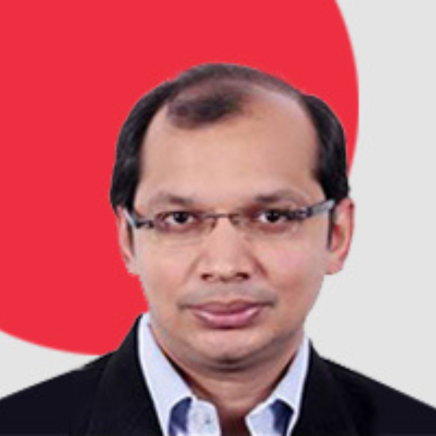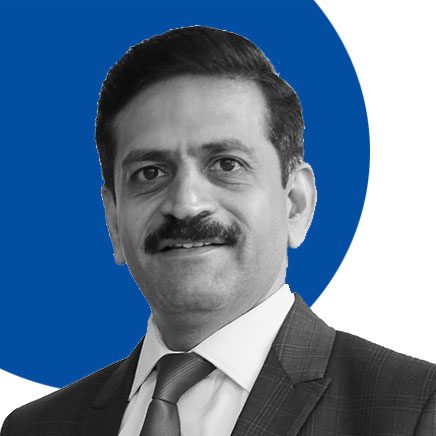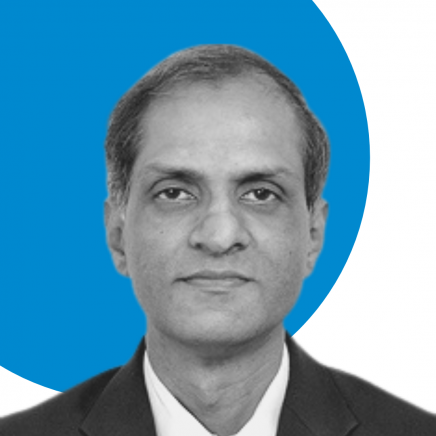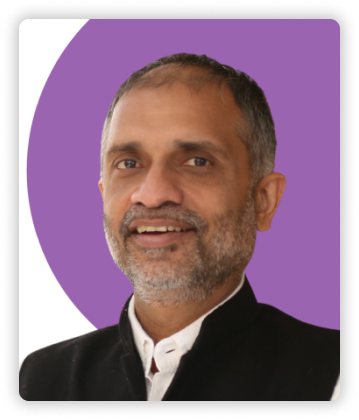CARMDAKSH is working in three districts that are located adjoining each other namely Bilaspur, Korba, and Gaurella-Pendra-Marwahi (GPM) districts in Chhattisgarh. Our Major focus of intervention is improvement in the quality of life of the poor and marginal section of the society. Our major theme of intervention is sustainable Livelihood through Integrated Natural Resource Management and quality education at the primary level.
Location
The Education program is located in Pali block of Korba district where we are working with four centres. Our intervention is with primary school children with a focus on classes 1st and 2nd through the learning center. Eklavya is helping us in building the capacity of the team and strengthening our intervention at the school level. Our intervention is in four primary schools in four villages through learning centers. Volunteers who are generally village youth help us in implementing the program.
Updates
We started our Intervention in Feb 2020 but unfortunately, we were unable to work at the ground level for the initial two years due to the Pandemic. Lockdowns and restrictions due to COVID-19 have impacted the normal operation of schools and the education of students. Hence, we could work effectively for only one year.
We utilized this period to build the capacities of the team with support from Eklavya. Unfortunately, during this period some team members dropped out because of COVID and other personal reasons. We were constantly working towards building a team that could commit to work for a longer duration. As a team, our progress has been slow mainly due to staff turnover. The new team members (who replaced the older members) took time to get going with the program.
We could eventually start our program in full steam in the third year i.e., 2022. Our intervention in four primary schools allowed us to directly work with the students. This helped us to gradually build our program. We were able to connect with the community to create awareness about education and help the parents appreciate their critical role in strengthening the learning of their children as well as the importance of staying engaged with the school. The team has also been working very closely with the schoolteachers who have appreciated the impact of our work on the children and their parents.
We are working with 12 teachers in four schools. Teachers learn about TLM in the Learning center to help the children in the learning process. They participate in community meetings and school development committee meetings. For those children who do not come for a long time, teachers do home visits with the CARM-DAKSh team.
At present, we are working in four primary schools where we have established four learning centers to support the children. The CARM-DAKSH team works in close association with the village-level volunteers at the learning center. The volunteers are the active youth in the village who come forward to support us in organizing meetings with the community and extend support in the learning center during class hours.
Since we do not pay stipends to the volunteers, we do experience dropouts. Eight volunteers were identified and trained by the CARM-DAKSH team. Of these two have stayed on and two new volunteers had to be brought on board.
The learning center is established either in the village community hall or in the school as per discussion with community and schoolteachers. The learning center opens before school hours so that children can attend school after the learning center session. We invite parents and sometimes teachers to our learning centers.
In the learning center, we create a favorable ecosystem for the children using different games (through pictures, and materials), short stories, and songs and perform activities like drawing, rhyming, and playing games. We have used Bala paintings on the wall of the learning center as these stimulate the children and make them curious to learn and remember things.
At the school level, we organize meetings with teachers periodically and participate in cluster meetings to share our initiatives and experiences. During the meeting, we discussed the teaching methods and the challenges faced. The Teachers also periodically share the improvement they observe in the children from alphabet to word to paragraph levels.
We also organize meetings with SMC members to share the improvement in learning of their children and also mobilize them to participate in the SMC meetings. Regular meetings were organized to create awareness about the importance of quality education and their role as parents.
We organized a Bal Bela (Annual program) at the school level with the permission from DEO (District Education Officer) and the School Principal. This was the first time such an event had been organized in the school. We invited the sarpanch and other villagers to attend the program. We got a good response from the teachers as well as the community including the parents.
This has helped build the morale of the children. They participated in different programs like drawing, sports, songs, and short plays. We now plan to organize an event where better communication can be facilitated between teachers and parents.
CARM-DAKSH had participated in several training programs organized by various organizations like Eklavya, Book Worm, and Wipro to build the capacity of the team. Exposure visits are organized to have a better understanding of the work other organizations are doing in the field. As mentioned earlier we experienced a high turnover of staff due to the pandemic and lockdown. This did slow down the progress.
Plans for next 1-3 years
We had a plan to reach 10 schools in the next three years. We need to explore opportunities to support our plan in the coming year. Along with this, we had planned to work on the establishment and function of the library.
Apart from these, we had planned to build the capacity of the team on Gender Equity and Masculinity. Strengthen the Livelihood Activity around Vegetable cultivation and Goarty in the coming year.

Sachin Bansal heads finance function for Wipro Consumer Care & Lighting in India and South Asia.
He moved to Wipro Consumer Care in 2022 and prior to that was the head of finance of Wipro Infrastructure Engineering (WIN). He joined WIN in 2007 and over the last 15 years has essayed several roles including Plant Finance, India Hydraulic Business Finance, Global Operations Finance and Mergers & Acquisitions.
A qualified Chartered Accountant and a Black Belt in Six Sigma, Sachin has led several successful initiatives to streamline and strengthen the Finance function. As part of the leadership team of WIN, he played a pivotal role in driving profitable growth with improved focus on ROCE, Productivity and Cost Optimization.

Isaac George has held several positions at Wipro across Sales & Marketing, Consulting, and IT Operations for over two decades. Since 2014, he has been leading People Function and Employee Relations at Wipro Infrastructure Engineering. Isaac also heads the group’s social initiatives efforts and works towards creating an inclusive environment for Persons with Disabilities.

Samir Gadgil is the Head HR for the Chief Growth Office and all Corporate Functions at Wipro. He is also Wipro Cares’ Pune Location Head.
Previously, Samir has worked as Head – HR for Digital Operations & Platforms and managed multiple initiatives under HR and People Supply Chain Functions, including Talent Acquisition, Talent Transformation, Workforce Management, Facilities & Transport.
A seasoned professional, Samir has also served as the Global Head- Compensation, and Benefits at Wipro and worked with best-in-class Manufacturing, Consulting, Financial, and IT Service Companies in a career spanning over two decades.

Narayan P S is the Global Head of Sustainability and Social Initiatives at Wipro Ltd. He is also the Managing Trustee at Wipro Foundation, the social initiatives arm of Wipro Ltd. He has been instrumental in the creation of Wipro’s sustainability initiative and has stewarded it since its inception in early 2008. Wipro’s sustainability charter is built on the core principle that business and social purpose must reinforce each other in addressing several key challenges around ecology and the environment, education, and communities.
In addition, Narayan is Visiting Faculty at the Azim Premji University where he teaches ‘Ecology and Development’ in the MA ( Development) program. He is also a Visiting Faculty at Xavier School of Sustainability, Xavier University, Bhubaneswar. Narayan also conducts learning sessions regularly on Sustainability at IIM Bangalore and IIM Indore.
Narayan’s interests center around (i) the broad interplay between Ecology, Economics, and Humanities (ii) the role of the business sector as a change agent in sustainable development (iii) Sustainability in Education, and (iv) Sustainable and Inclusive Cities.
Prior to the current role, Narayan was the Global Head of Information Systems for Wipro’s IT business, when he was chosen as one of CIO’s global 25 Ones to Watch.
A graduate in Electrical Engineering with a post-graduation in Management, Narayan has more than twenty-seven years of cross-disciplinary experience in Business Development, Enterprise Systems, and Corporate Sustainability. He is also involved in sustainability advocacy as a member of several industry forums on sustainability. He is currently the Chairman of the CII-GBC Greenco forum for Bangalore.
To effectively execute projects in our chosen areas of work, we aim to partner with credible organizations that comply with the criteria mentioned below:

Vikrant has recently joined to lead the human resources function for Wipro Enterprises which includes Wipro Infrastructure Engineering (WIN) and Wipro Consumer Care & Lighting businesses.
Vikrant comes with 25 years of diverse global leadership experience in Strategic Talent Management, Mergers & Acquisitions, Organization Design, Cultural Transformation & Change Management, D&I, and Leadership Coaching & Development across Services, Manufacturing, Retail and Technology industries. Besides Human Resources, Vikrant has also led roles across Finance & Audit.
With a career spanning L&T, GE Healthcare, Nike, Accenture, HCL, and Harman International, Vikrant has a distinguished track record and is an alumnus of the Symbiosis Institute of Business Management, Pune.

Aparna C. Iyer is Wipro’s Chief Financial Officer.
Aparna joined Wipro in 2003 and over the years has held several finance roles, including Internal Audit, Business Finance, Finance Planning and Analysis, Corporate Treasury, and Investor Relations (IR).
Most recently, Aparna was Senior Vice President and CFO of Wipro FullStride Cloud, leading finance operations for one Wipro’s fastest growing global business lines.
Prior to taking over as CFO of Wipro FullStride Cloud, Aparna was the Corporate Treasurer and Head of Investor Relations for Wipro Limited. As a part of that role, she was responsible for building and executing forex risk management framework, investment of surplus cash, working capital management, customer credit risk evaluation, driving capital allocation decisions, managing balance sheet exposure as well as investor and analyst relationships.
As the Head of Treasury & IR, Aparna devised Wipro’s forex strategy, aiding the operating margin performance of the company, and driving improved predictability.
Aparna is a Chartered Accountant (CA) and was a gold medalist of the CA 2002 batch.

Saurabh Govil is the Chief Human Resources Officer at Wipro, and a member of the Management Team. He leads all Wipro’s HR functions, including talent acquisition, talent engagement, and learning and development programs.
Saurabh has been a HR practitioner for over two decades, and has worked with organizations like ITC and GE. Since joining Wipro in May, 2009, he has been instrumental in transforming the organization. His work with people, processes, and organizational structure over the last three years has contributed significantly to Wipro’s growth, improving operations and introducing many new initiatives.
Saurabh is an alumnus of XLRI, Jamshedpur where he completed his master’s in human resources. He is on the advisory board of SHRM India. Saurabh has been a regular speaker at NASSCOM’s HR summit. He also contributes to NHRDN’s journal as an author.

Anurag Behar is the Chief Sustainability Officer of Wipro Limited & Vice-Chancellor, Azim Premji University.
Anurag is a member of the Committee that has developed India’s National Education Policy (2019), the first comprehensive education policy for the country, since 1986. He has been deeply engaged with efforts to improve education in India, for the past seventeen years.
He has been a vocal advocate for the critical importance of public systems, in particular the public education system. His many years in business have given him an insider’s view of both the possibilities and limits of markets. For the past few years, he has also been engaged with environmental and ecological issues. He writes widely, including a fortnightly column for the national newspapers Mint & Hindustan, and other publications.
Anurag has earlier played leadership roles in business. As the CEO of Wipro Infrastructure Engineering, he led the business from being No. 20 in the world to being the No. 1 in 5 years. He has also been responsible for many corporate functions for Wipro including Brand, Quality, and Innovation. He continues to provide oversight to the social and ecological initiatives of the Wipro Group, as its Chief Sustainability Officer. He is a member of Wipro’s Group Executive Council.
Anurag has served on various boards including that of Wipro GE Healthcare Ltd, The University of Trans-Disciplinary Health Sciences, and of the TERI University. He serves on many government & sector councils, such as MHRD’s EQUIP, the National Mission on Teachers and Teacher Education, the Government of India implementation committee for the Justice Verma Commission, Karnataka Knowledge Commission, and with the CII’s National Climate Change Council.
He has an MBA from XLRI, Jamshedpur, and a BE in Electrical & Electronics Engineering from the National Institute of Technology, Trichy. Both institutions have honored him with their Distinguished Alumnus award. He was elected as a ‘Young Global Leader’, by the World Economic Forum in 2008. He enjoys long-distance running.

Narayan P S is the Global Head of Sustainability and Social Initiatives at Wipro Ltd. He is also the Managing Trustee at Wipro Foundation, the social initiatives arm of Wipro Ltd. He has been instrumental in the creation of Wipro’s sustainability initiative and has stewarded it since its inception in early 2008. Wipro’s sustainability charter is built on the core principle that business and social purpose must reinforce each other in addressing several key challenges around ecology and the environment, education, and communities.
In addition, Narayan is Visiting Faculty at the Azim Premji University where he teaches ‘Ecology and Development’ in the MA ( Development) program. He is also a Visiting Faculty at Xavier School of Sustainability, Xavier University, Bhubaneswar. Narayan also conducts learning sessions regularly on Sustainability at IIM Bangalore and IIM Indore.
Narayan’s interests center around (i) the broad interplay between Ecology, Economics, and Humanities (ii) the role of the business sector as a change agent in sustainable development (iii) Sustainability in Education, and (iv) Sustainable and Inclusive Cities.
Prior to the current role, Narayan was the Global Head of Information Systems for Wipro’s IT business, when he was chosen as one of CIO’s global 25 Ones to Watch.
A graduate in Electrical Engineering with a post-graduation in Management, Narayan has more than twenty-seven years of cross-disciplinary experience in Business Development, Enterprise Systems, and Corporate Sustainability. He is also involved in sustainability advocacy as a member of several industry forums on sustainability. He is currently the Chairman of the CII-GBC Greenco forum for Bangalore.